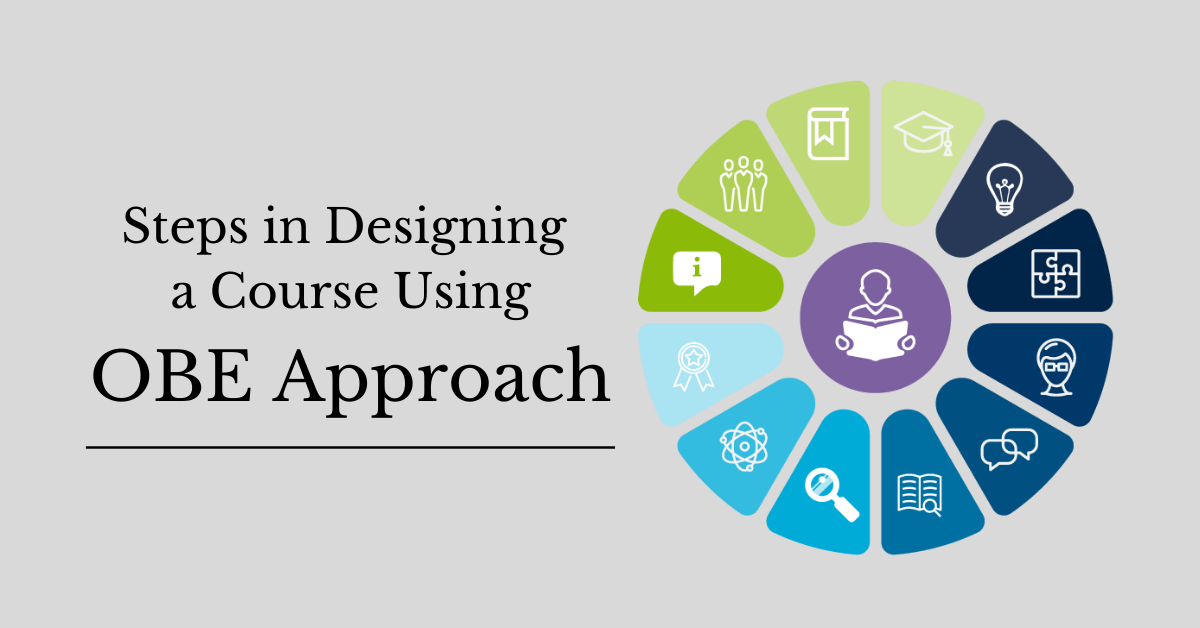
The four stages in an OBE implementation process are:
(i) formulation of the education system in the lines of OBE
(ii) execution of the curricular activities at par with OBE standards
(iii) assessment of the performance in lieu of OBE criteria
(iv) fine-tuning of the system based on the feedback from the stakeholders.
Undoubtedly, the efficiency of an OBE system to a greater extent depends on how well the curriculum is managed and delivered. Drilling down to the course level, it is mandatory that a curricular framework or a course design is needed to assist the teacher and students to navigate through the curricular activities along the right track.
The cardinal principle behind an OBE Course Design is the principle of constructive alignment, i.e. streamlining the learning experiences and assessments to the intended learning outcome. The process flow of activities in a Course Design is shown below.
Table of Contents
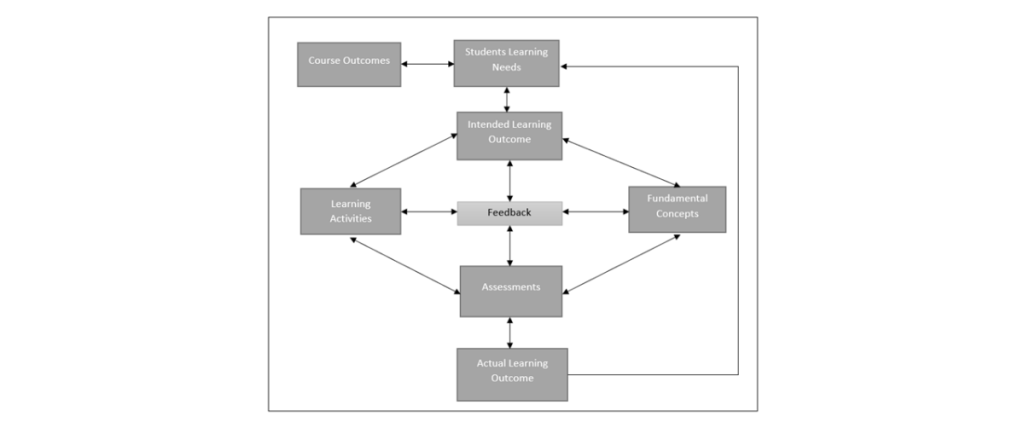
A course design is a layout of the guided plan of the various components of the course. This help in generating a conducive environment for learning in lines with the OBE principles and a check of various components of the curriculum in terms of the course outcomes
The main components of an OBE-enabled course design include:
Positively, the most dynamic component in an OBE scenario is the process part where the students are actively involved in the curricular activities. In this context, a well-structured Course Design provides guided access of curriculum to the stakeholders for effective teaching and learning and for the successful accomplishment of the end outcomes. Eventually, this mandates a systematic procedure in developing a course design. Few suggestive steps for the development of an effective course design are detailed below.
The following steps could help in developing an effective OBE-enabled course design.
Few elements to be considered for the success of OBE include.
In an OBE environment, the role of the teacher is that of an engineer who designs an environment for learning. Here the pupil is actively involved in the learning process for the attainment of the intended learning outcomes. Henceforth, for designing an effective environment for learning a sound knowledge of activity-based learning strategies are essential.
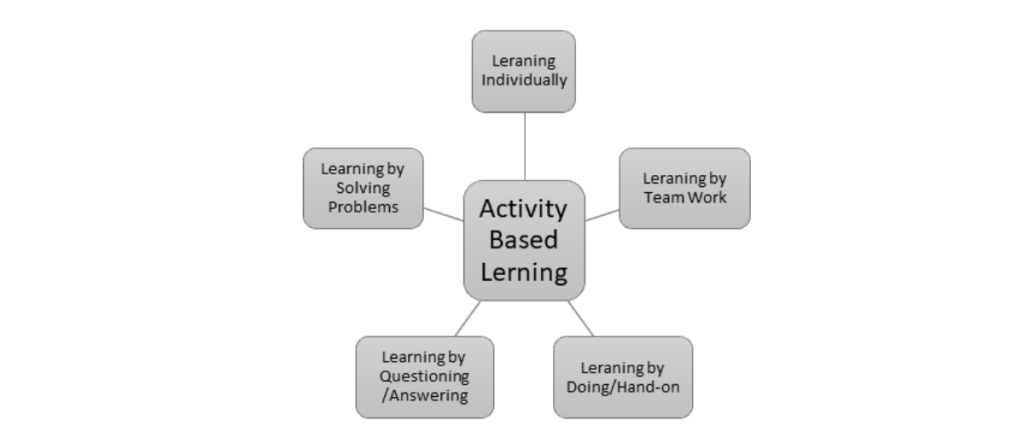
Few strategies based on Activity Based Learning: MOOC, Flipped Classroom, Supervised Learning, Think Pair Share, Think Pair Solo, Round Robin, Collaborative Learning, Puzzles, Programmed Instructions, Matrix Method, Peer Learning, Work-Based Learning, Problem-Based Learning, Personalized Learning, Group Discussion, Debate, Case Studies, Fishbowl, Reciprocal Teaching, etc.
Course Code and Name:
Semester:
Course outcomes:
| CO1 | |
| CO2 | |
| CO3 | |
| CO4 | |
| CO5 |
Module: 1
| Course Outcomes | Content | Learning Experience | Assessment/Indicators |
|
|
Formative Assessment
Assignments Summative Assessment |
Column 1: The code of the respective course outcomes related to Module 1 should be listed in this column.
Column 2: The fundamental concepts and the content related to Module 1 are listed in this column. The content may be arranged in a unit-wise sequence such that corresponding to each unit we should be able to formulate a well-structured learning outcome.
Column 3: Here we state the intended learning outcome related to each unit with the appropriate learning activities/experience and the teaching / technological aids used as a support system.
Column4: Here the formative assessment indicators which are appropriate for the intended learning outcome should be included. Summative assessment relates to the term test, here the weightage of the content in the test may be specified. Assignments may be additional learning resources, exercise works, creative or constructive activities related to the topic.
Scheme of Course-related Activity
A course curriculum encompasses several functional activities along with the structured theoretical syllabus. An OBE curriculum gives a high priority to such activities as it promotes learning to higher-order thinking skills and competencies. The scheme of course-related activity should be integrated with course design
Sample Scheme:
| Sl. No | Activity | Wt. of Marks | Course Outcome |
| 1. | Assignment | 5 | CO1, CO2, CO5 |
| 2. | Project | 5 | CO1, CO2, CO3 |
| 3. | Seminar | 5 | CO3, CO4 |
| 4. | Industrial Visit | 5 | CO2, CO4, CO5 |
| 5. | Test 1 | 3 | CO1, CO2, CO3 |
| 6. | Test 2 | 7 | CO1, CO2, CO3, CO5 |
A well-structured course plan will serve as a guiding light to both the teachers and students for the selection and execution of the various curricular activities in lieu of OBE. This will also serve as an authentic departmental-wise document that could be produced to the higher authorities and the inspection team for evaluating the OBE-related activities of the department.
Gauhati University recently made significant strides towards enhancing the quality of Higher Education across the North East region by signing a Memorandum of Understanding (MOU) with IPSR Solutions Limited. This significant agreement designates Gauhati University as a mentor in Outcome Based Education (OBE) for Higher Educational Institutions (HEIs) throughout the region. Through this MOU, IPSR […]
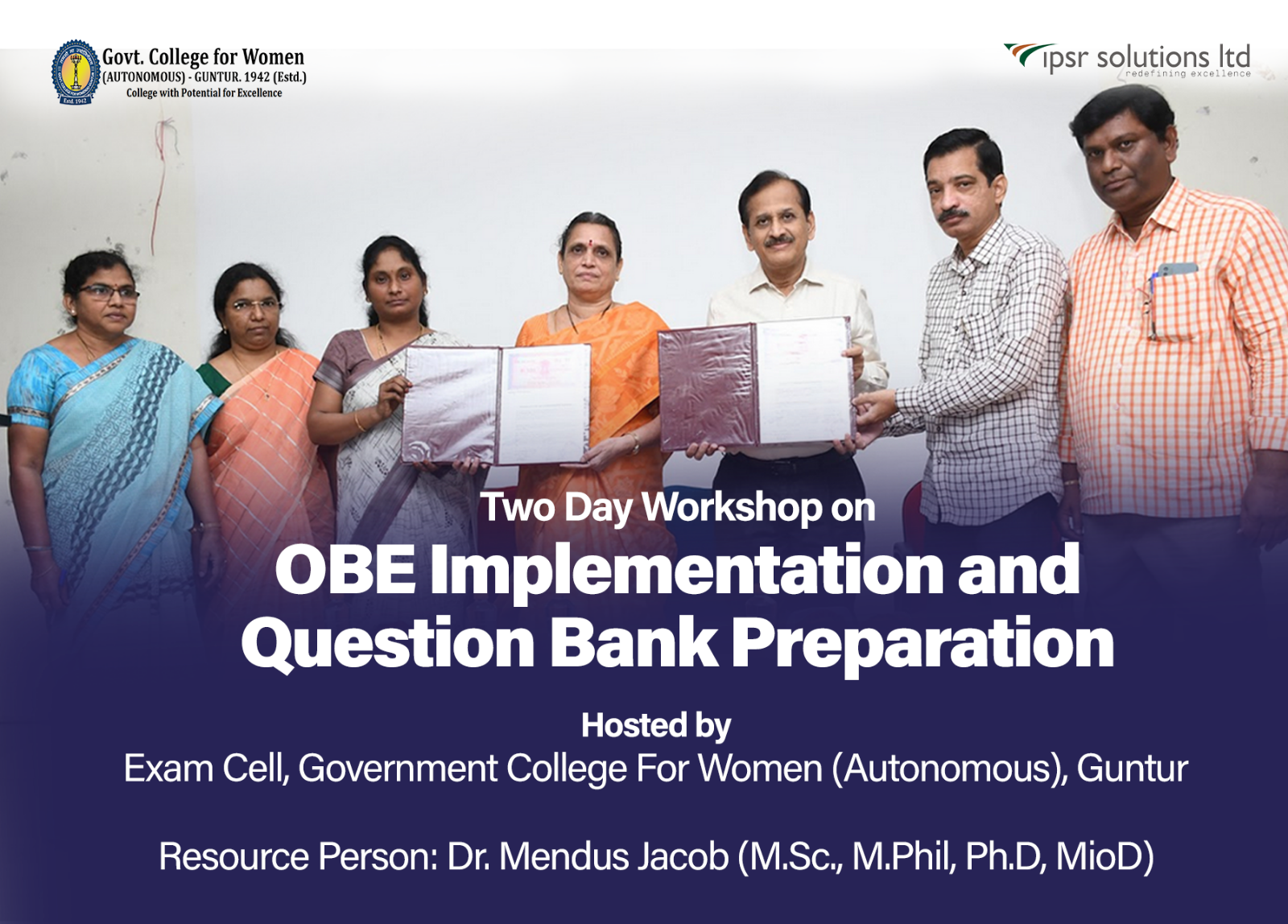
In a remarkable stride towards enhancing educational practices, Government College for Women Autonomous, Guntur, Andhra Pradesh, commenced on an enlightening two-day workshop on Outcome-Based Education (OBE) Implementation and Question Bank Preparation. Held on February 6th and 7th, 2024, this initiative was a collaborative effort with ipsr solutions limited, the recent OBE (Outcome-Based Education) workshop held […]

A journey begins. In 2019, just before the pandemic started, we were contacted by RVS College regarding OBE implementation. That’s how our relationship with our latest QnSmart i customer began. Our deep expertise, our research insights, and our dedication and focus on helping colleges and universities get geared for today’s education landscape convinced RVS College […]
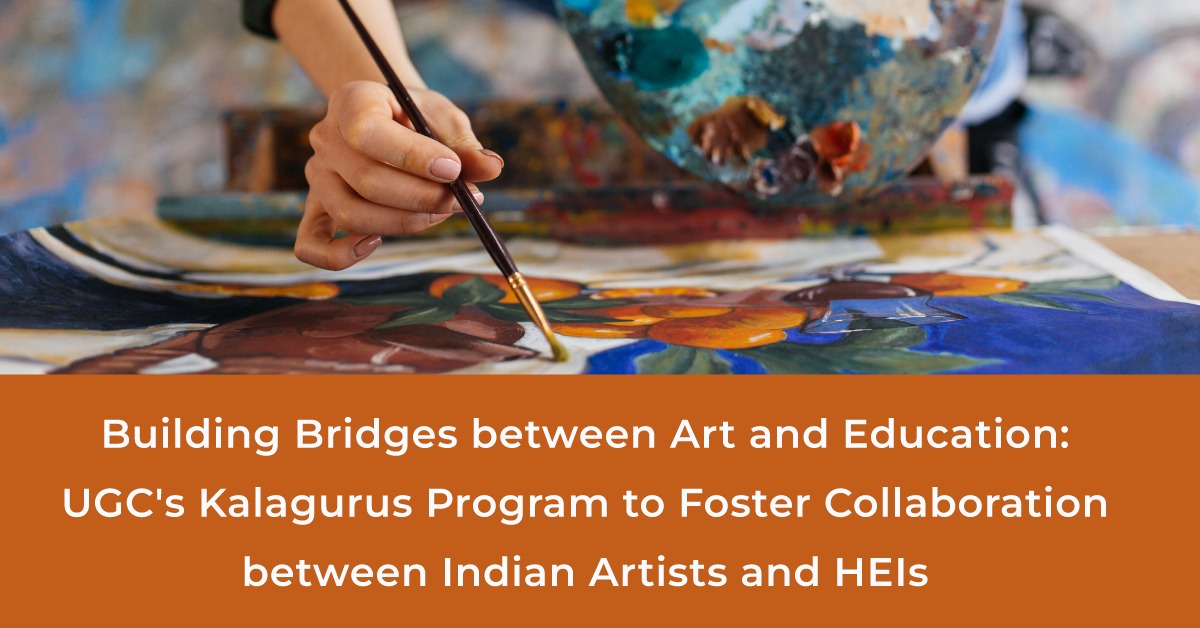
UGC promotes inclusion of Indian Artists and Artisans in Indian HEIs as ‘Kalagurus’ The University Grants Commission (UGC) has recently proposed a draft regulation that will appoint local artists and artisans in colleges and universities. This initiative aligns with the National Education Policy 2020‘s goal of bridging the gap between higher education and the arts. […]
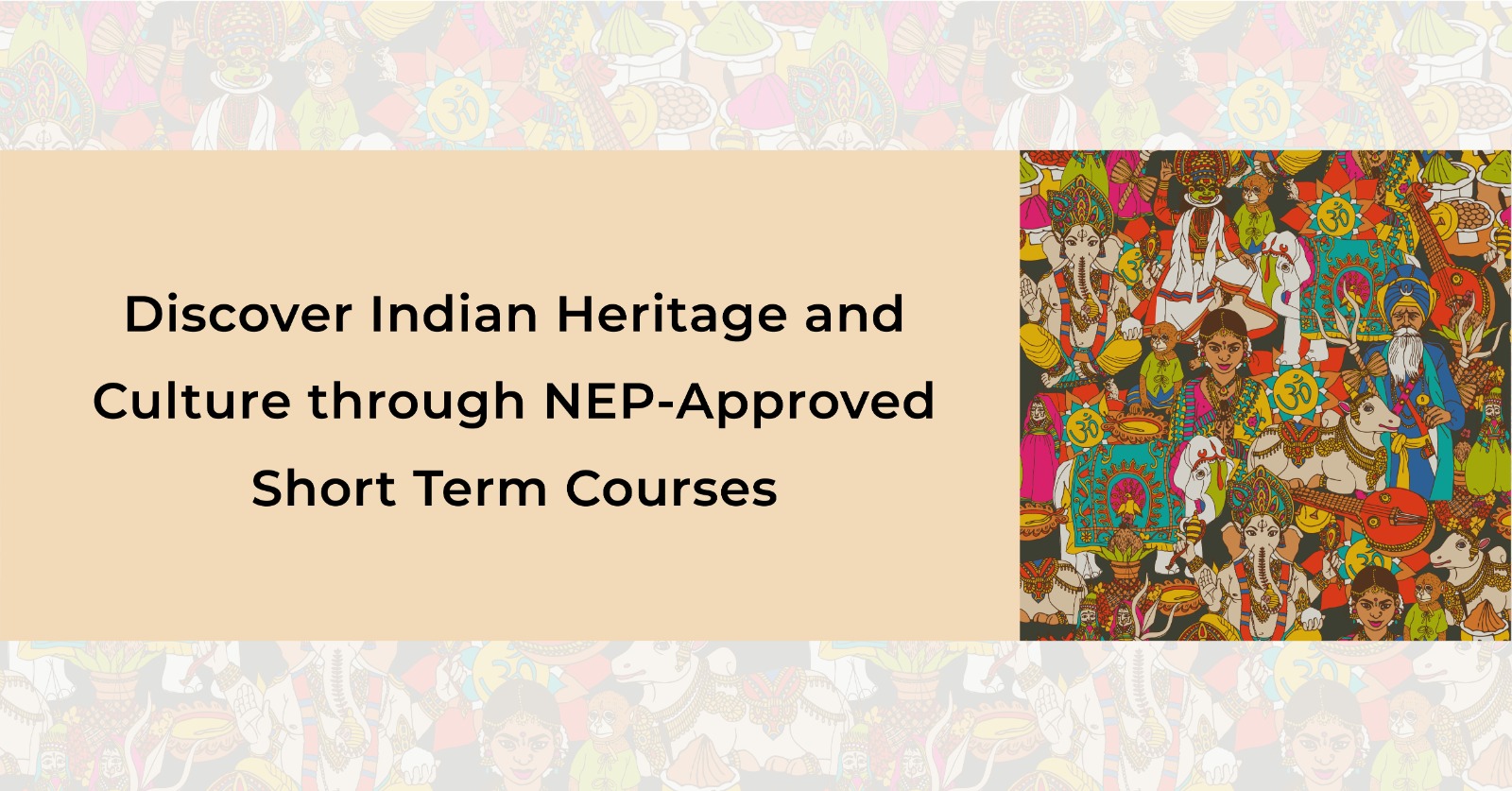
Understanding India: NEP-aligned Short Term courses on Indian Heritage and Culture India is a land of rich heritage and culture, and the University Grants Commission (UGC) has proposed introducing courses that showcase this diversity to attract international students. The UGC has issued draft guidelines for higher educational institutions to offer short-term modular programs on various […]
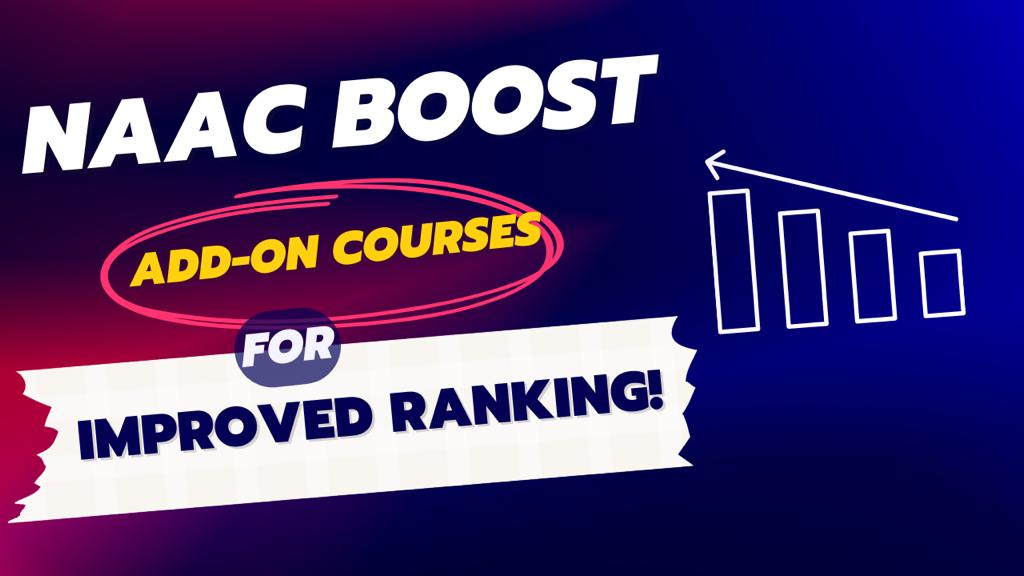
Add-on courses are short-term training programs that are designed to supplement the core curriculum of a degree program. These courses are usually offered as certificate or diploma courses, and they provide students with additional skills and knowledge that are relevant to their field of study. Add-on Courses and the New Curriculum Framework The hallmark of […]
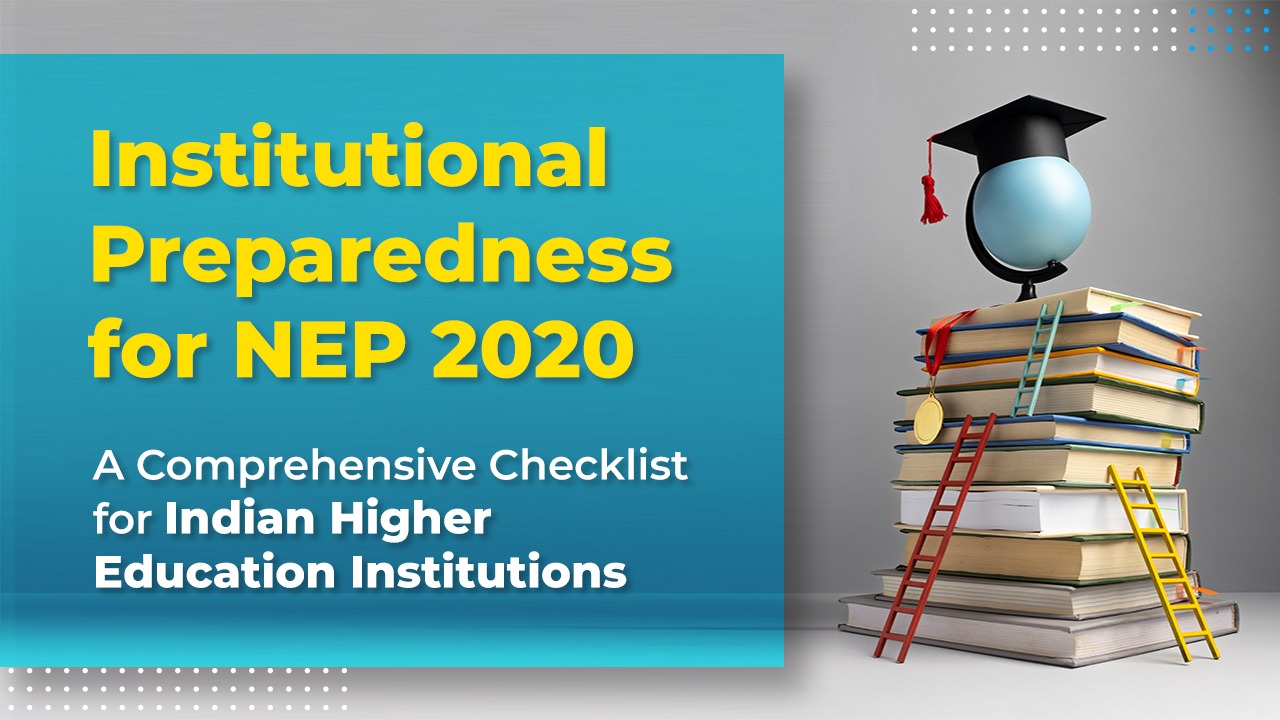
As per the National Education Policy 2020, higher education in India is poised for a transformational change. All Indian HEIs will be expected to achieve a number of milestones to ensure they are fully prepared for the rollout of NEP 2020. This is also a requirement for Accreditation. When trying to get your institution ready […]
Red Hat Academy (RHA) is a Free Academic partnership from Red Hat, the American multinational software company and the world’s leading provider of enterprise open source solutions. Red Hat Academy provides a curriculum to help education institutions keep pace with the demands of the industry. The curriculum involves hands-on instruction across the platform, middleware, and […]
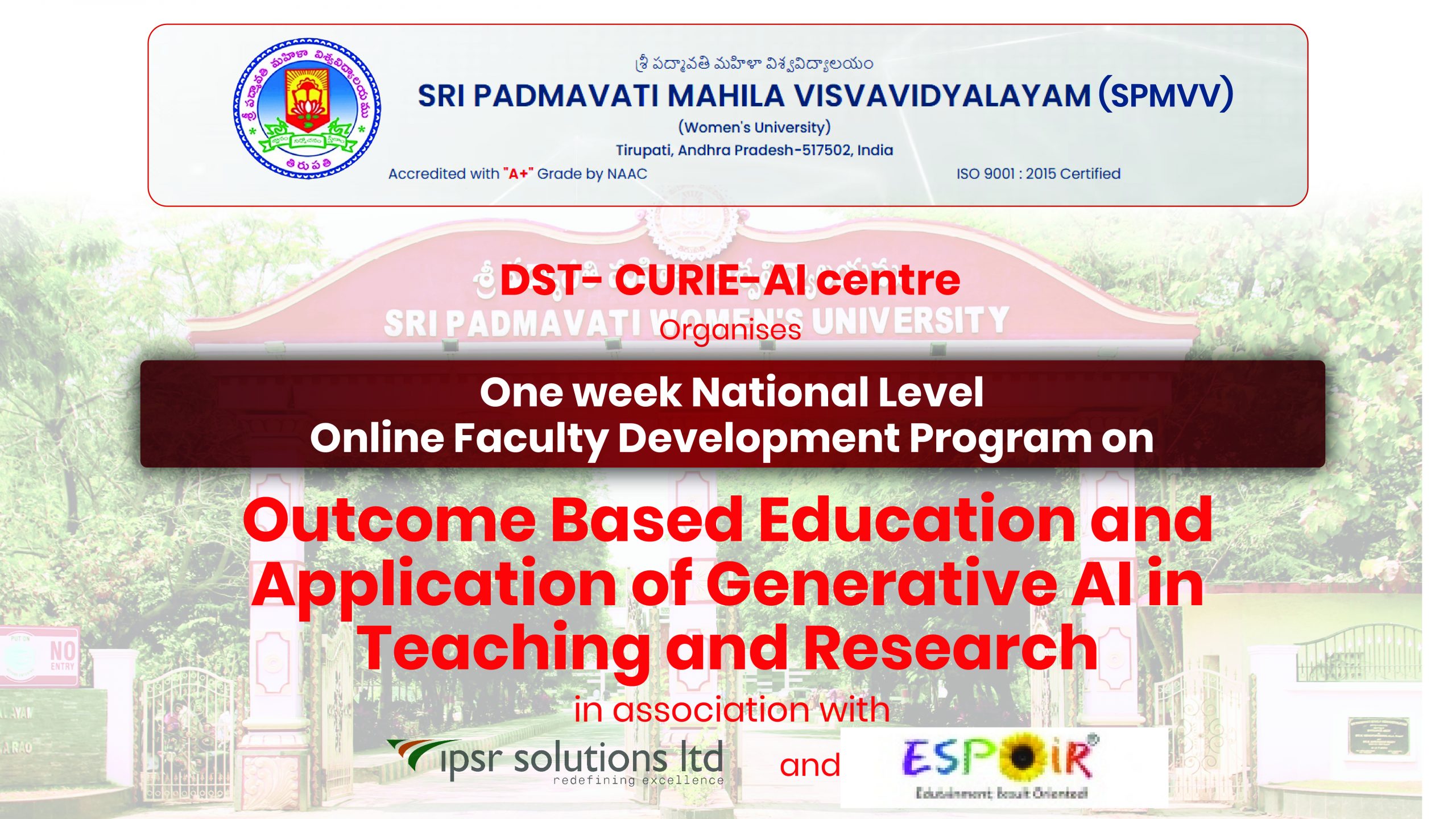
Highlights of the FDP: The resource persons for the seven-day sessions were Dr Sunil Job KA, Dr Suresh Namboothiri, and Dr Thomas Varghese. Programme sessions are delivered through synchronous-asynchronous hybrid mode. Live webinars steered the Inaugural session and streamed through multiple channels. Hands-on Activities through LMS provide an enriched learning experience. 1509 Participants and 593 […]
Copyright @ 2026  ipsr solutions limited. All rights reserved
ipsr solutions limited. All rights reserved
Very much useful
informative
Thank you, feel free to contact us at academicsolutions@ipsrsolutions.com
Dear Deepthi John, Thanks for leaving us such wonderful feedback. We are happy that our blog was informative and valuable for you. If you have any queries, feel free to contact us at academicsolutions@ipsrsolutions.com
Thanks for the very informative and systematic narration of the Steps in Designing a Course using OBE approach
Dear George Mathew, Thanks for leaving us such wonderful feedback. We are happy that our blog was informative and valuable for you. If you have any queries, feel free to contact us at academicsolutions@ipsrsolutions.com